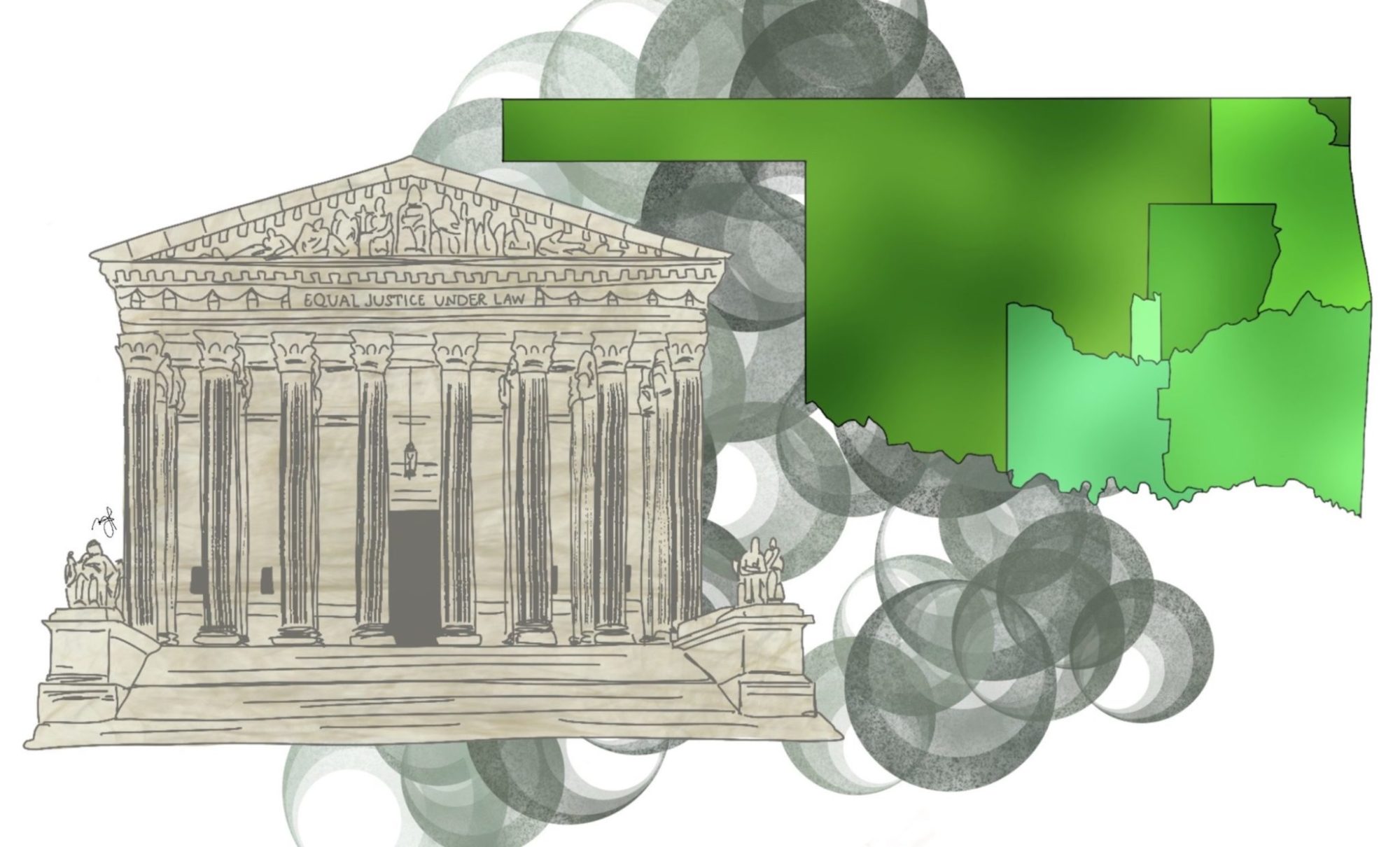
Zoe Berg, Photo Editor
On Thursday, students, professors and experts came together to discuss the future of Native Americans and the U.S. Supreme Court in the wake of the McGirt v. Oklahoma decision released this past summer.
The discussion was a Davenport College Tea organized by Jay Fife Jr. ’22, a member of the Mvskoke Nation and descendant of the Chickasaw and Apsaalooke tribes. It was moderated by Davenport Head of College John Fabian Witt ’94 and was co-sponsored by the Native American Cultural Center. Featured speakers included professor of environmental law Gerald Torres, Mvskoke Nation leader Jeff Fife and Mvskoke Nation member Ashleigh Fixico. According to Fife Jr., the event was designed to educate Yale students about the U.S. Supreme Court’s recent ruling in the case of McGirt v. Oklahoma, which established that the land set aside for the Mvskoke Nation in 1866 still belongs to the nation. The ruling, Fife Jr. said, potentially has broad implications for all Indigenous Americans.
“This was a great way to host an event to educate my college as well as the broader American society,” said Fife Jr. “Many legal scholars have called this the most historic Indigenous law decision of the year, I would probably say the decade. … This case really comes down to … indigenous sovereignty.”
The case was brought to court by Jimcy McGirt, a Seminole man whom the state of Oklahoma had found guilty of sex crimes. His argument was that the state had no jurisdiction to do so given that his offenses had taken place on Indigenous land, as determined by the U.S. Treaty with the Creek Nation, which was signed in 1866. The court, in a majority opinion piece written by Justice Neil Gorsuch, sided with him on July 9.
The Supreme Court first tackled the issues associated with this case on the basis of another case, Sharp v. Murphy. Fixico spoke about attending the Sharp v. Murphy hearings along with Fife Jr.
“I stood in line for five hours on the coldest November day I’ve ever experienced,” said Fixico. “When I got into the courtroom … I experienced emotions that I didn’t think were even possible for me to experience. … I just felt outraged that despite the demonstrated success of tribal nations, not only in Oklahoma but across the nation, we’re still being argued, like we’re backward savages needing paternalistic protection.”
Fixico described hoping that justice would be served that day. Instead, the court did not issue a ruling on the case that year. Gorsuch had to recuse himself, given that he had first heard the case while on an appellate court. Without him, the court was caught in a deadlock that was only resolved when it agreed to take on the case of McGirt v. Oklahoma this year.
According to Fife Jr., several organizations and universities have taken time to address and discuss this ruling but have not included the perspective of those directly affected by the ruling in question. He hoped that this event would be a chance for attendees to hear about this decision and its implications from the perspective of Mvskoke individuals.
“Being a Mvskoke person myself it was a little bit difficult to fully understand the implications of everything that’s happening,” said Seneca Johnson ’24. “Not only the fact that it’s like being discussed but being discussed like by other Mvskoke people in this academic setting was super exciting.”
Toward the end of the hour, the discussion shifted to what exactly the court decision may mean for the future of laws relating to the rights of Indigenous people. Fixico described how excited she was that the language Gorsuch used when discussing Indigenous people in the majority opinion is not as “pejorative” and “paternalistic” as the language used by courts in the past. Now this language and the ruling itself are part of United States common law and can be used in future court cases.
Fife described this ruling as a moment of immense opportunity and a step away from the disagreements of the past between various tribes and the government of Oklahoma. Further, he said, this is a moment of opportunity for tribes to come together. Fixico echoed this sentiment.
“We already won in the courtroom, and now it’s going to take all of us, together, regardless of who you are, where you come from, because this isn’t just about the Mvskoke Nation,” said Fixico, on the subject of maintaining Indigenous sovereignty. “Yes, we did fight, and yes, we did win, but now it takes all of us to stand together and we really need you guys.”
The NACC was officially founded in 1993 and is currently celebrating Indigenous Peoples’ Heritage Month.
Amre Proman | amre.proman@yale.edu







